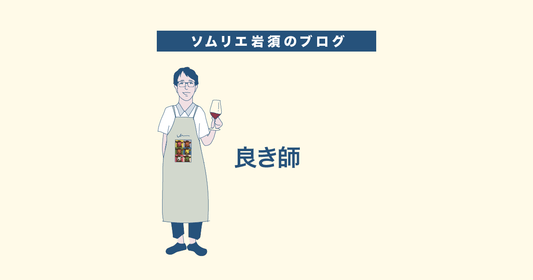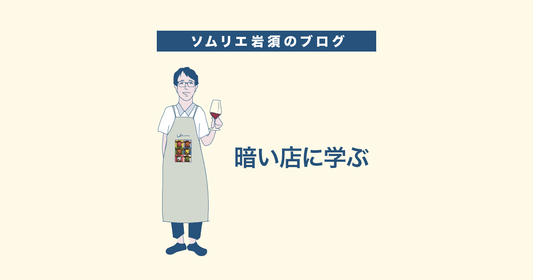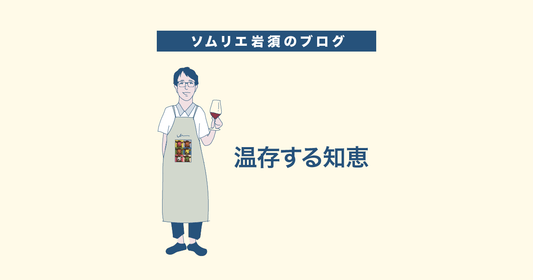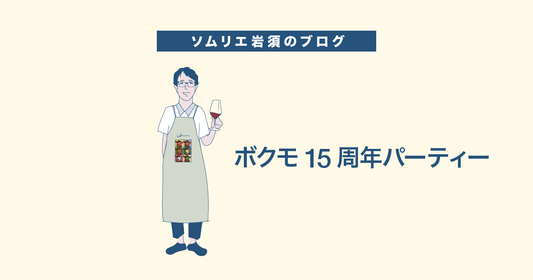
Corona has brought us to an uncharted territory. It is very difficult for me to discern what is correct from the ever-changing information. I also find it difficult to write down anything related to Corona in a place like this. I just hope that the situation will be resolved with fewer sad events. And I hope that the world will return to a vibrant place once it is resolved. That's all I can write now.
This time, I will not write about Corona, but about the theme of "Olympics and Wine."
I also work in radio. I mainly write scripts for radio stations in Tokyo, and in that connection, I've been gathering information to find out what's going on in each industry due to the postponement of the Olympics. How much will it affect people involved in the sports, accommodation, and other people who were preparing for the Olympics? How will each industry deal with their own problems in the future? I've been surfing the internet hoping to find some good ideas to help people stay positive in times like these, but in reality, there isn't much information on the internet yet. I imagine that people are probably still in the midst of frantically holding remote meetings. So, as I was researching things related to the Olympics, a question suddenly came to mind.
Hmm? What kind of connection does our wine industry have with the Olympics? Were there any big initiatives, such as livening up the event or entertaining overseas customers? Even though I've been running a wine store for 10 years, I had completely ignored that. I thought this was no good, so I looked into it.
The search term is "Olympic Wine." I press enter while predicting the results to some extent.
Hmm?
The articles that came out one after another were not what I expected.
The Olympic limited edition wine " Saintoneige Limited Edition Japanese Wine 5 Variety Blend " will be released on October 1, 2019. There are many articles introducing it.
Wow. I had no idea that such a wine was available. The seller is Asahi Beer. Asahi Beer is a Tokyo 2020 Olympic Gold Partner (the highest level sponsor in Japan), and in the wine category, Asahi Beer is the only company in Japan. (Some people may wonder, "Wine even though it's beer?" Asahi Beer is also a winemaker that has been making Japanese wine for a long time under the brand " Saint Neige ".)
If you look at the picture... it has the official Olympic logo, so anyone can tell it's an official product. The grapes used are 100% Japanese. I see, it's a purely Japanese wine without any imported ingredients. A blend of five different grape varieties? Oh, is this a play on the number five of the Olympic rings? The price is 2,000 yen for both red and white.
So, from the perspective of the wine industry, was this planned to create a mood where restaurants would introduce "This is the official wine of the Olympics!" to customers from home and abroad, or to toast with this wine while watching the Olympics on TV at home?
So I asked Asahi Beer's customer service how many bottles they were shipping. They told me it was about 20,000 bottles in total, red and white. Hmm, not many. And because it's a "complete reservation order system," Asahi Beer is already out of stock, and only the stock that each liquor store has is left. In Aichi Prefecture, where I live, Yamaya Fujigaoka Store in Nagoya purchases it, so I was told to ask there. When I asked, I was told they had five bottles each of red and white in stock (as of March 31). However, it seems that it's hard to get it elsewhere in Aichi.
Hmm. I wonder what it's like to have the official wine so hard to get hold of. I think it would be possible to create a way to get excited about the Olympics if it were available casually at restaurants, or available for purchase at supermarkets and convenience stores.
I wonder how it tastes. Let's take a look at the varieties used. From here on, there will be a lot of katakana. The reds are Merlot, Muscat Bailey A, Cabernet Sauvignon, Kyoho, and Verdelay (Seibel 9110: white grapes). The whites are Verdelay, Delaware, Koshu, Chardonnay, and Pinot Gris. I can imagine that the reds have a body and a smooth taste, but the white Verdelay is so minor that it's a bit difficult for me to estimate what kind of aroma and flavor it has.
As a result, I found the search results to be quite strange.
Maybe when you search for "Olympics" online, the official partners of the Olympics tend to show up at the top of the results. But even so, with my search skills, I couldn't find anything about the wine industry approaching the Olympics (I apologize in advance if you scold me for being blind for not finding anything).
But, if the Olympics are to be positioned as a platform to promote Japanese wine overseas, I think there is a clear line to what needs to be done. I find it strange that the things that need to be done are not mentioned at all in online articles.
What we need to do. Those in the wine industry who are reading this will understand, right? After all, Japan is now in a period where it needs to build a foundation for exports in preparation for the future decline in the wine drinking population. So, what the Japanese wine industry needs to appeal to overseas customers now is what we need to sell. Let's say it together. Ready...
"Koshu"
Yes, I think we all agree.
For those of you who are not in the wine industry, here is a brief explanation. As the name suggests, "Koshu" is the name of a grape variety that is widely cultivated in Yamanashi, and is the only white grape variety indigenous to Japan that is registered with the international wine judging organization "OIV". However, its original roots are in Europe, and it is said to have been brought to Japan via the Silk Road. It underwent repeated crossbreeding during its introduction, and by the time it was established in Japan, it had become an original variety that is unique to Japan.
The Japanese wine world has been working hard to make a good Koshu wine, believing that this original Koshu is worthy of representing Japan. As a result, in 2014, "Cuvée Misawa Akeno Koshu 2013" became the first Japanese wine to win a gold medal at the Decanter World Wine Awards, a global wine competition. This was an amazing event. Then, in January 2020, "Grand Champ Mori Koshu sur Lie" became the first Koshu wine to win a gold medal at the International Wine Challenge, another globally influential event. It may be an exaggeration to say that Koshu is the Takeshi of the wine world, but it feels like we are finally entering a phase where wine fans around the world will not leave Koshu alone.
Especially during the Olympics, many people from all over the world who are used to drinking wine with meals will come to Japan. They will probably be looking for something uniquely Japanese. I think the first wine they should suggest to them is Koshu wine.
The limited edition Sainte-Neige products mentioned earlier are elaborately made wines. They are attractive to Japanese people, but I feel that their origins are too complicated for people overseas. There is not enough distribution. In comparison, Koshu wines are simply single-variety wines, and they are made by a considerable number of wineries, so they are easy to obtain.
Of course, we would also like to promote Bordeaux-type wines from Yamanashi and Nagano, Pinot Noir from Hokkaido, Albariño from Niigata, and Muscat Bailey A from all over Japan, but too much information about anything weakens the power of the information. When considering wine varieties, production volume, and price, Koshu is by far the most representative wine. In Japan, which has a rich alcohol culture with sake and shochu, the first priority is to spread the name "Koshu is the Japanese wine" to the world.
By the way, it seems that the Tokyo Olympics will open on July 23, 2021. It will probably be extremely hot. I worry about whether the event will be managed properly, but if the environment is set up so that we can drink wine with ease, I think a chilled Koshu will be perfect for a dry throat. Koshu has a light and crisp taste.
So, if they think, "That Koshu I drank in Japan is perfect for summer, so I want to drink it when I go back to my country," then we're in! Wine lovers from countries with hot summers and a deep wine culture, such as Spain, Italy, China, and Singapore, might be interested.
If you like it, you can introduce other wines besides dry ones, such as sparkling, sweet, and rich high-end versions, and the unique characteristics of each winery. Wines with a proper depth will impress wine enthusiasts.
(But to tell you the truth, a long time ago I read Sawaki Kotaro's non-fiction book "Kammun OLYMPIC GAMES" (2004). It was a book that exposed the tremendous commercialization of the Olympics. From this book I learned that the Olympics are far from a sacred event, and are in fact a money game where the economy takes precedence. So since then, I personally don't think of the Olympics as something shiny and beautiful at all, and I often don't like the frivolous way the media hypes them up. But...)
The fact is, the Olympics is an event that brings many people to Japan, that's for sure. In 2019, there were 31,882,000 foreign visitors to Japan. The government's goal for 2020 was 40 million, but of course, this will be impossible to achieve due to COVID. But in 2021, once the world is safely free from COVID, there will surely be a backlash. Consumer behavior will pick up. I believe that.
When that happens, what kind of experiences should we want these visitors to take home? I think that seriously thinking about this and working on it will help boost Japan's industries after the Olympics.
Unfortunately, it has been extended by a year. I'm sure many people are having a very hard time. However, I think that those in the wine industry can feel a little more optimistic if they think about the progress of their own business and the progress of the industry as a whole. During this extended period, why not brainstorm ideas and think about selling Koshu to the world?
for example····
- Koshu producers come together to promote their products
- The Sommelier Association will hold a Koshu tasting event during the event.
- Propose a one-day Koshu experience tour to Yamanashi for Olympic visitors
What can we do right now in our own neighborhood?
- Place POPs in various languages recommending Koshu in retail stores and restaurants
I think I can do this right away. I'll give it a try. Olympic guests may not come to our store, but when foreign customers return, we'll be ready to serve them properly.
Once I do, I'll post back here how I did it.
Now, I'm going to Yamaya Fujigaoka store to buy some Saint-Neige wine with the official mark. I want to know what the official mark is. While drinking that wine, I'd like to think about promoting Koshu again.





